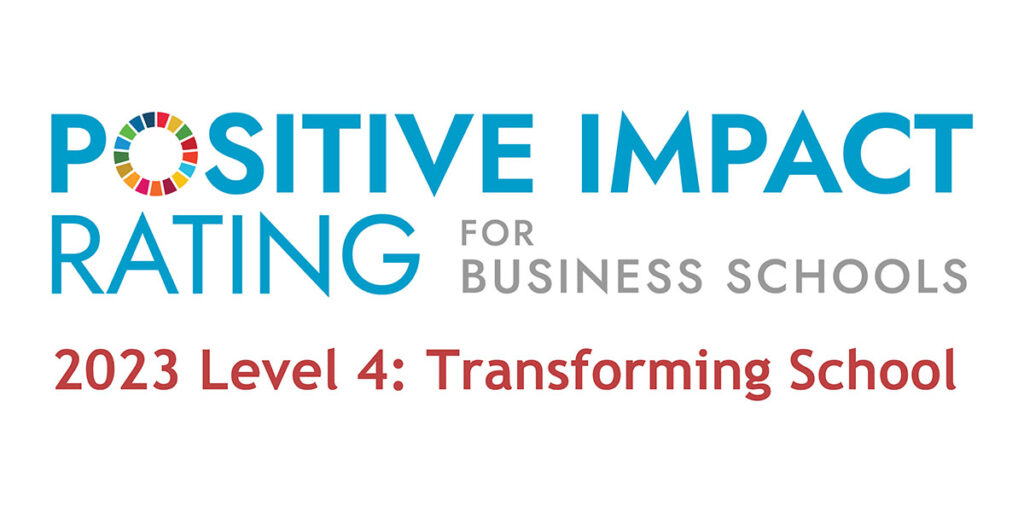Students Rate Carleton’s Sprott School as a Transforming School in UN Positive Impact Rating
Carleton University’s Sprott School of Business was recognized for its societal impact when the Positive Impact Rating (PIR) 2023 Report was launched on Wednesday at the UN PRME Global Forum at Fordham University in New York City.
Sprott was one of 69 business schools from 25 countries worldwide that took part in the PIR this year and achieved the second-highest rating of Level 4, making it a Transforming school within the PIR.

“Thank you to our students at the Sprott School of Business who shared their ideas and comments in the PIR assessment, ‘to integrate learning, research and communication to accelerate change in business schools through transparency and collaboration with students,'” said Dana Brown, dean of the Sprott School of Business.
“The joint commitment of deans attending the PRME Global Forum reflects our trust and faith in youth and our academic communities to respond to the challenges and opportunities of our time. A call to action for us to widen and deepen the processes of co-creation in our school to foster the knowledge, skills and empathy that future leaders will require to address the complex issues of our time.”
What makes the PIR especially meaningful is the rating is conducted by students and for students. For the fourth time, students worldwide assessed their business schools on how they perceive their positive impact on the world. The positive impact of business schools goes beyond their contribution to business and the economy; it addresses the need for a positive societal impact.
“While future students now have an alternative source to select their business school, schools refer to the PIR primarily to measure and communicate their transformational progress. The voice of the student has become a true source of value,” said Thomas Dyllick, Prof. em., Director of the Institute for Business Sustainability, Switzerland, PIR founder and member of the PIR Supervisory Board.
The data collection was organized by student associations, which distributed surveys across the school. The PIR gives the students a platform to assess the positive impact of their schools, providing a unique opportunity for their voice to be heard. The PIR is the only rating worldwide in which students assess their business schools on their positive impact.
The rating survey asks students 20 questions in seven relevant impact dimensions: governance and culture of the school; study programs, learning methods, and student support; the institution as a role model and its public engagement.
The Positive Impact Rating was created by concerned business school experts together with global NGOs – WWF, Oxfam, and UN Global Compact. The PIR partners with international student associations – oikos International, AIESEC, Net Impact, SOS UK, Studenten vor Morgen NL. It collaborates with the Global Business School Network (GBSN) and the Principles for Responsible Management Education (PRME), and it is supported by VIVA Idea (Costa Rica), and The Institute for Business Sustainability Foundation (Switzerland).
The Principles for Responsible Management Education (PRME) is a United Nations-supported initiative founded in 2007 as a platform to raise the profile of sustainability in schools around the world, and to equip today’s business students with the understanding and ability to deliver change tomorrow.